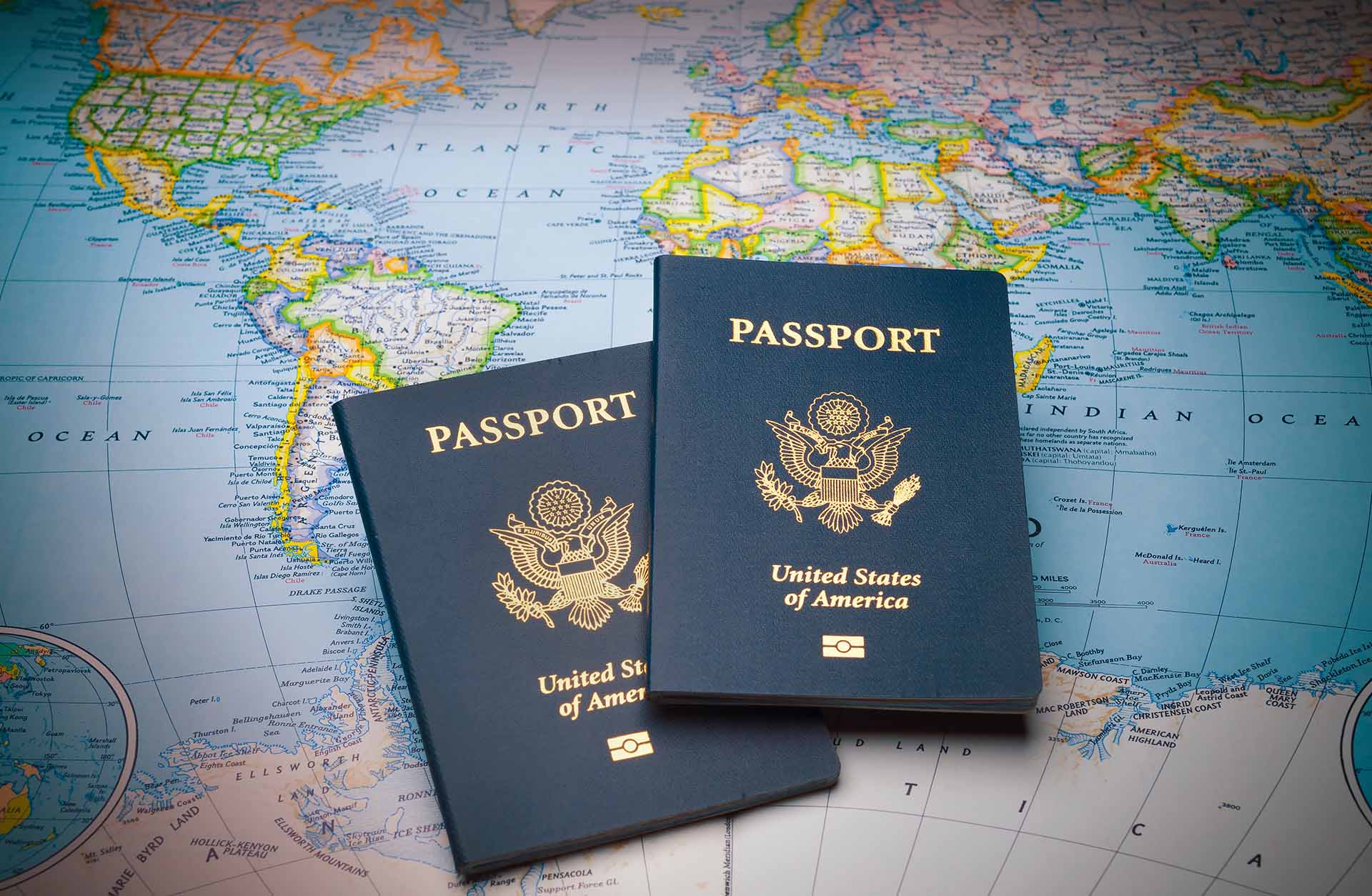Iceland, a land of stunning contrasts, has captured the world’s imagination. Its landscapes, marked by glaciers and fiery volcanoes, along with a rich Viking heritage and iconic wooly jumpers, set it apart. Amid its growing global fame, the question of affordability often arises, especially for those moving to Iceland. Join us as we explore what relocating to this unique country means.
Why Should You Consider Moving To Island
Iceland is usually referred to as one of the best countries to live in. However, relocating to another country demands being well-informed on common facts and the best cities to live in. You also have to explore its legal, permanent citizenship, and visa requirements. This transitional phase involves adjusting to the new environment, different climate, and cost of living.
Its free healthcare, education and many job opportunities are certainly a big refreshment. Citizens are proud of their cultural heritage, unique cuisine, and many natural beauties you can’t miss.
However, with all the benefits, remember that moving abroad is a complex task that requires thorough planning and execution. That’s why you should choose a reliable overseas moving company for a smoother and efficient transition.
Learn Some Facts About Iceland Before Relocating There
Understanding Iceland’s essence is crucial before embarking on your international journey. It is known as “The Land of Fire and Ice.” It presents a fascinating contrast between the fiery power of its numerous volcanoes and the serene beauty of its expansive glaciers. Beyond its geological wonders, it offers a glimpse into its unique character and natural beauty:
- Geothermal power – it is a world leader in renewable energy, particularly geothermal power, thanks to its volcanic activity. Almost 90% of homes are heated with geothermal energy, making it one of the world’s cleanest and most sustainable countries.
- Water purity – it boasts some of the cleanest drinking water in the world. The water is so pure that it requires no treatment and can be consumed directly from the tap.
- Midnight sun and polar nights – due to its location just below the Arctic Circle, it experiences some natural phenomena. The midnight sun, where the sun sets around midnight and rises again around 3 AM in the summer. During polar nights in winter, the sun barely rises above the horizon.
- Literary heritage – it has a rich literary tradition dating back to the medieval period, including the famous Sagas of Icelanders. Today, it publishes more books per capita than any other country.
- Unique wildlife—the Arctic fox is the only mammal native to this island. Early settlers brought the Icelandic horse there. This is also a prime location for birdwatching, especially puffins, which can be seen in large numbers during the breeding season.
- Volcanic landscape – with over 130 volcanic mountains, the country’s landscape is continually reshaped by their activity. This includes the famous Eyjafjallajökull volcano, whose 2010 eruption caused widespread air travel disruption.
- Icelandic language – this language has remained largely unchanged from its ancient Norse roots, making medieval texts still readable to contemporary folks. Its preservation is a source of national pride.
- No formal family names – children’s last names are derived from their parents’ first names, with the addition of -son (son) or -dóttir (daughter).

There Are Several Legal Requirements That Americans Should Fulfill Before Moving Overseas
Moving to Iceland from the US is feasible, yet it comes with specific limitations set by the country. For stays extending beyond three months, engaging with the Directorate of Immigration is necessary to request a residence permit.
Decisions on residency are tailored to individual situations. Your eligibility hinges on the purpose of your stay, with approved reasons often including:
- Employment in a skilled profession,
- Academic studies,
- Volunteering,
- Serving as an au pair,
- Family reunification with a partner, minor child, or elderly parent.
Before moving overseas, it’s essential to ensure you have arranged accommodation in a new country. Additionally, you will have to present a clean criminal record and undergo a compulsory health check. The immigration process also requires you to provide your passport and evidence of valid health insurance. Being well-prepared and booking a legitimate overseas shipping company will streamline the whole process and set the stage for a stress-free transition.
How to Qualify for Permanent Residency and Citizenship
To qualify for permanent residency, you typically need to have lived in the country for around four years on a legal residence permit. Applicants must have shown good conduct during their stay, including having no criminal record. They also need to prove financial stability, ensuring they can support themselves without relying on social assistance. Proficiency in the Icelandic language is often another requirement, demonstrating the applicant’s effort to integrate into society.
The requirements for citizenship are generally more stringent. In addition to a longer residency requirement, which can be up to seven years, applicants must pass a more comprehensive language test and possibly a test on Icelandic society. However, it’s always best to consult the official website or contact the relevant authorities for the most accurate and up-to-date information.

These Are Some of the Top Cities to Live In Iceland
Researching your potential new home is vital when moving internationally. Iceland, with its stunning landscapes and unique culture, offers a variety of cities that cater to different lifestyles and needs. Whether you’re drawn to the vibrant city life or the serene beauty of nature, it has something for everyone. Here’s a closer look at some top cities to consider when moving to this majestic country.
Reykjavik, the heart of this country, is the capital and the largest city, boasting over 200,000 residents. Nestled on the southwest coast, it’s been the epicenter of Icelandic culture and governance since the 19th century.
Known for its lively summer nights, when the sun barely sets, Reykjavik transforms into a city buzzing with activities. The city’s charm is amplified by colorful houses and a vibrant job market. In winter, its landscape is a picturesque scene of buildings blanketed with ice, while summer brings a bustling city life.
Akureyri, a harbor town rich in outdoor activities, is perfect for nature lovers. From skiing to fishing and bird-watching, this town has it all. It’s known for its cultural sights, art galleries, and traditional restaurants.
Large green spaces fill the city, providing a peaceful lifestyle. Its location also serves as a gateway via the Arctic Coast Way, connecting you to the northern reaches of the country and its quaint fishing villages.
Just a short distance from Reykjavik lies Hafnarfjörður, the third-largest town. It’s a hub for trade and a hotspot for tourists seeking festivals and cultural events, including the Bright Days Festival and the Viking Festival. Known as the center of rock and roll, Hafnarfjörður offers a lively atmosphere with various accommodation options at budget-friendly rates.
For those who crave creativity and nature, Seyðisfjörður is the place to be. With a vibrant art scene and abundant green areas, it appeals to artists and nature enthusiasts alike. The town’s stunning landscapes and proximity to mountains offer a tranquil setting, ideal for those interested in agriculture or simply enjoying the great outdoors. Its economy thrives on tourism, making it a lively place to reside.
Close to Reykjavik, Kópavogur stands out with its impressive landscape and colorful architecture. It’s the second-most populated city and is experiencing rapid development. The city offers many housing options, making it attractive to expatriates. Noteworthy is the Kópavogur Church, alongside the fascinating Kópavogur Art Museum, which are must-visits for anyone living or visiting the area.
You Will Have to Make Some Adjustments to a Higher Cost of Living In Iceland
Moving to this Nordic island means embracing its majestic landscapes at a higher cost of living – about 32% more than in the US. However, renting is more affordable here, being around 19% cheaper. Dining out, for instance, will cost you around $20 for a meal in an inexpensive restaurant, compared to $15 in the US. On the mobility front, a mile in a taxi is approximately $5, and gym enthusiasts will find monthly memberships averaging $65.
Yet, when it comes to housing, Iceland offers a pleasant surprise with lower rental costs for 1-room apartments at $1,550, compared to $1,800 in the US. Salaries are slightly lower – with the average monthly salary around $4,250 – its unique lifestyle and natural beauty might just balance the scales for many. Also, Iceland maintains a low unemployment rate of 3.4% as of October 2024 – this reflects economic stability but also a competitive job market.

Iceland Offers Universal Healthcare, Ensuring That Everyone Has Access to Emergency Assistance
In this country, everyone with legal residency for over six months gets coverage under the Icelandic Health Insurance (IHI). This system provides access to a wide range of healthcare services. The country, divided into seven healthcare districts, offers everything from primary care to specialized treatments through its healthcare centers.
A co-payment system is in place, keeping healthcare affordable, especially for frequent users, the elderly, the disabled, and children. With a maximum copayment cap, healthcare costs are significantly reduced. It relies on a state-run health service, avoiding private health insurance. This system ensures all residents, regardless of their financial situation, have access to necessary medical care.
Job Opportunities for Expats Are Extensive
To Americans moving to Iceland, this area might not seem like an obvious destination for job seeking. However, as a modern European nation, it boasts work opportunities similar to those found in other countries. In the third quarter of 2024, Iceland’s activity rate for individuals aged 16 to 74 was 83.8%, reflecting a 2.8 percentage point increase compared to the same period in 2023.
The range of jobs available for foreigners is vast, covering sectors from tourism and construction to education and healthcare. Keeping an open mind is key when job hunting, as some roles are more accessible to expats, while others may require a deep understanding of the local language and culture. Keep in mind that during the third quarter of 2024, there were approximately 6,070 job vacancies in Iceland, resulting in a job vacancy rate of 2.4%.
For those willing to start with any job to facilitate their relocation, Reykjavik offers the most opportunities. On the other hand, various industries could lead you to explore the more secluded parts of this island. English speakers, in particular, find niches in tourism, counseling, teaching, and quality management. The tourism sector, aiming to cater to visitors from regions like Central and Southern Europe, North America, and the UK, heavily relies on English language skills.
Temporary positions in the hospitality industry are abundant during the Icelandic summer, and teaching English is a viable option for those with the necessary qualifications. However, one typically needs a bachelor’s degree and ESL or TEFL certification. Most teaching positions are at the high school level or above and may require prior teaching experience. These job possibilities open doors for expats to feel fulfilled and settled after their major transition.
This Country Offers Free Tuition to Its Students
This is a nation committed to education by offering free tuition to its students, a testament to its investment in future generations. Beyond the benefit of free education, graduates are granted a 2-year permanent residency, allowing them to seamlessly transition into the workforce without the immediate pressure of leaving the country. This policy extends to families as well.
The Icelandic education system is designed to accommodate a diverse range of academic interests and career paths. In the autumn of 2023, 43,446 students enrolled in upper secondary and tertiary education levels in Iceland. Bachelor’s degree programs typically span 3 to 4 years, while more specialized candidates’ degrees in fields such as medicine, law, theology, business administration, dentistry, and engineering can take up to six years to complete.
For those looking to further their education, postgraduate certificates and master’s degrees are achievable with an additional one to two years of study, respectively.

Icelanders Are Proud of Their Viking Heritage
Iceland, a country rich in Nordic traditions, deeply cherishes its Viking ancestry. This pride is woven into the fabric of their culture. This is especially evident in the Icelandic language, which retains strong connections to Old Norse, the language of the Vikings. This linguistic heritage serves as a living link to their forebears, offering a direct connection to their historic roots.
However, the Icelandic affinity for their heritage continues beyond language. The country boasts a vibrant cultural scene, from its cuisine rooted in tradition to a flourishing arts sector. Reykjavik is a cultural hub with its myriad galleries, bookstores, theaters, and a symphony orchestra. Icelandic music, a unique fusion of pop and folk, plays a significant role in the country’s cultural identity. Attending a local performance allows you to dive deep into their essence and experience the contemporary expressions of the ancient Viking spirit.
These Are Some of the Special Events and Traditions You Should Know About
In this Nordic country, several unique celebrations mark the calendar, enriching the cultural tapestry. Bóndadagur and Konudagur, known as Husband’s Day and Wife’s Day, are occasions dedicated to cherishing one’s partner with gifts and meals. Thorrablót is a cherished event commemorating the ancient month of Thorri, from mid-January to mid-February, characterized by feasts featuring smoked lamb alongside singing, games, and storytelling.
The belief in elves highlights the locals’ enduring connection to a world of magic and mystery. A notable fraction of the population firmly believes in their existence, while nearly half consider it a possibility, reflecting the deep-rooted love for folklore and mythical tales. Elves, trolls, and other fantastical beings symbolize this enduring fascination with the mystical, a testament to the nation’s rich narrative tradition.
Well, Is It Always So Cold On This Nordic Island?
Contrary to popular belief, this Nordic island enjoys relatively mild summers. July temperatures range between 10 and 13 degrees Celsius, occasionally climbing up to a warm 25 degrees, surpassing a typical summer day in the UK.
Winters are not as harsh as those in Sweden or Norway, thanks to the moderating influence of the Gulf Stream. Yet, the climate is known for its unpredictability. The wind chill factor can significantly amplify the cold, especially during the winter months when temperatures can drop to as low as -5 degrees.
Most of the Population Is Fluent in English, So Learning Icelandic Is an Added Bonus
The majority of the population is fluent in English, making communication easy for newcomers. However, for those planning to stay longer, picking up the local language becomes more than just a bonus—it’s a step towards deeper integration. Learning it not only enriches personal experiences but also opens up more opportunities, both socially and professionally, allowing for fuller participation in the community’s daily life.
Experience Strong Icelandic Cuisine
The food culture here focuses on fresh, locally sourced lamb and seafood, thanks to the surrounding ocean’s rich bounty. While traditional dishes like Hákarl, fermented shark, are more for special occasions and might not suit everyone’s taste, you’ll find plenty of restaurants serving delicious dishes. Some traditional foods, like Þorramatur, a platter of cured meat and fish, are more about celebrating history than daily dining.
These Are the Must-See You Highlights
Covering all 3,728 miles of its stunning landscapes, you can cross it in about 15-17 hours, offering a unique adventure at every turn. The Golden Circle is an essential starting point, showcasing geological and historic marvels within a day’s journey from Reykjavik. But the adventure doesn’t stop there.
Beyond the capital’s cultural scene lie the country’s true gems, its natural wonders. Spectacular waterfalls like Skogafoss and the basalt-framed Svartifoss, as well as the iconic black sand beaches near Vik and Álftanes, offer breathtaking views.
The shimmering icebergs at Diamond Beach next to Jokulsarlon Glacial Lagoon add a magical touch to the landscape. Heading north, Lake Myvatn presents a unique blend of volcanic features and abundant birdlife, with the awe-inspiring Dettifoss waterfall as a nearby highlight. This is just a glimpse of what awaits, showcasing why every mile traveled here is a discovery.

Hire an International Moving Company and Simplify Your Transition
Relocating to another country demands a lot of attention and planning. That’s why it is best to leave the logistics to reliable professionals. Hiring movers for the job will streamline the whole process. I Love International Moving company has the knowledge and experience in handling foreign relocations.
You can choose between the affordability of our international moving by-sea services or the convenience of shipping overseas by air. Our professional packing solutions are designed to safeguard your belongings through the whole process with quality supplies, easing their transition to the future home.

Let Our Team Handle the Logistics So You Can Enjoy This Magical Journey
If you are not sure how to handle all the paperwork and international regulations, book the right partner. I Love International Moving company is experienced in handling these nuances and so much more. Our team will use quality packing materials and equipment to make this process smooth and stress-free. So, contact us today and book our services on time. We will handle it from there.
















